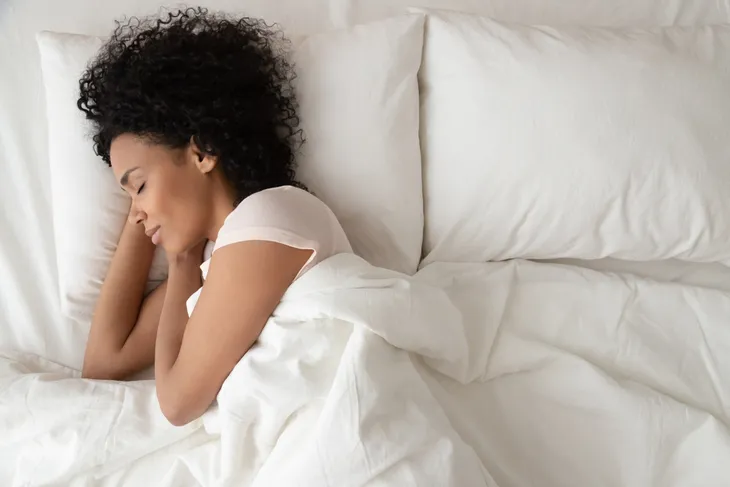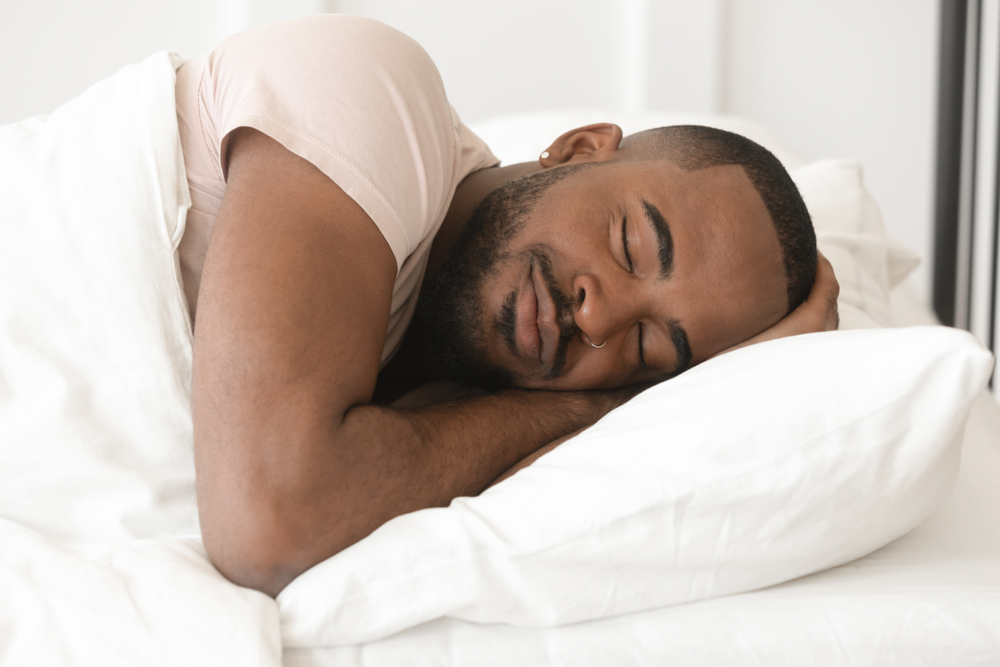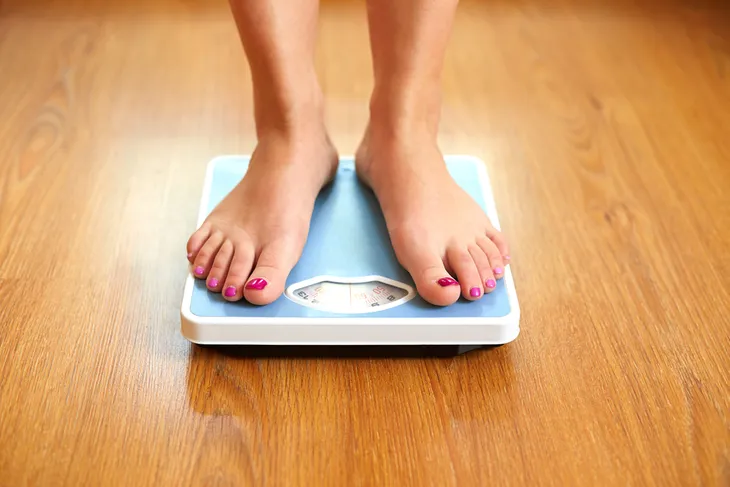We hear it time and time again: get more sleep! While experts often tout the importance of sleep, people tend to shrug it off or can’t find the time to invest in good quality sleep. And we get it, life gets busy! But the fact is, sleep doesn’t just help you feel refreshed the next day; it really does play a vital role in your overall health in many ways. Understand all the important reasons why you need to start investing in your sleep.
Improves Concentration and Productivity
Have you ever woken up the next day feeling foggy-headed and groggy? This is a key indicator that you didn’t get enough hours of sleep or good quality sleep. It turns out sleep plays an important role in brain function.
Healthline says sleep deprivation can negatively impact cognition, concentration, productivity, and performance. The source references a study that examined overworked physicians and found that doctors who had moderate to very high sleep-related impairment were up to 97-percent more likely to report “clinically significant medical errors.” The source also notes that sleep can impact your academic performance too.
Improves Memory
Another important part of brain function is memory, and it turns out sleep plays a role in that too. Verywell Health says sleep specifically plays a large role in memory consolidation.
The source explains that when you sleep, your brain makes connections, linking “events, feelings, and sensory input to form memories.” However, your brain requires deep sleep to do this,s which means it’s important to invest in good quality sleep, not just getting more hours of sleep.
Improves Mood
Have you ever woken up from a poor night’s sleep only to be in a miserable mood? There’s a reason for this! Sleep can play a role in your mood.
The Sleep Foundation explains that sleep improves energy levels, which means when you wake up well-rested, it can have a positive impact on your mood. On the contrary, chronic lack of sleep can lead to poor moods such as irritability and even anxiety or depression, says the source.
Supports the Immune System
Your immune system plays a vital role in protecting your body from outside invaders, such as viruses, bacteria, and toxins. This is why it’s important to do what you can to protect it. It turns out sleep also plays a role in how your immune system functions.
The Mayo Clinic says “Studies show that people who don’t get quality sleep or enough sleep are more likely to get sick after being exposed to a virus, such as a common cold virus.” A lack of sleep can also play a role in how quickly you recover when you do get sick. So, protect your immune system and get some sleep!
Regulates Blood Sugar
The Sleep Foundation says sleep also impacts your body’s relationship with the hormone that regulates glucose in the body by helping glucose enter the body’s cells. This is important because your cells use glucose as energy.
The source says chronic lack of sleep can increase your risk for Type 2 diabetes. Without adequate sleep, your body can build resistance to the hormone that regulates glucose in the body. This is because your cells aren’t able to use it appropriately which ultimately leads to too much sugar in the bloodstream, explains the source.
Reduces Stress
Everyone deals with stress from time to time but it turns out your sleep can also play a role in how you manage it. Verywell Health explains that sleep helps your mind and body relax and recover but when you’re sleep-deprived, your body releases stress hormones.
Sleep deprivation can also cause poor performance, difficulty thinking, and lack of energy which can all exacerbate stress. In contrast, when you get enough sleep, you’ll be able to think more clearly and be more productive, which can all contribute to reducing stress.
Promotes Heart Health
It’s no secret that the heart is a vital organ, which is why we must take care of it. But it turns out sleep can also play a role in heart health. When you sleep, your heart rate slows down and your blood pressure decreases, allowing your vascular system to rest, says the Sleep Foundation.
In contrast, lack of sleep can cause your blood pressure to remain too high for long periods of time. In turn, this can increase your risk of heart disease and heart attack.
 Shutterstock/Syda Productions
Shutterstock/Syda ProductionsImproves Athletic Performance
Are you having difficulty finding the motivation to work out? A lack of sleep may be the culprit! Healthline says not only can a lack of sleep lower your motivation to exercise, but it can also increase your risk of injury when you do exercise.
Furthermore, sleep also plays a role in athletic recovery. The Sleep Foundation explains that sleep helps repair tissues as “the body’s production of growth hormones is highest during sleep.” This is essential for athletic recovery and muscle growth.
Helps Maintain a Healthy Body Weight
Maintaining a healthy body weight is important for your overall health. While you may have your diet and exercise routine figured out, have you invested in your sleep? Quality sleep, exercise, healthy eating, and stress management all work together to maintain a healthy weight. But how exactly?
The Sleep Foundation explains that when you sleep, your body “naturally produces more of an appetite suppressor, called leptin, while reducing production of the appetite stimulant ghrelin.” But when you don’t get enough sleep, ghrelin increases and leptin decreases which can cause increased feelings of hunger. In turn, this may lead to overeating and eventually, weight gain.
How Much Sleep Do You Really Need?
Now that you know sleep has a ton of incredible health benefits to offer, you might be wondering how much sleep do I really need anyway? The amount of sleep you need will depend on your age and it will change as you grow older too. The Centers for Disease Control and Prevention (CDC) suggests the following:
- Newborns (0- to 3-months) need 14- to 17-hours of sleep.
- Infants (4- to 12-months) need 12- to 16-hours of sleep, including naps.
- Toddlers (1- to 2-years) need 11- to 14-hours of sleep, including naps.
- Preschoolers (3- to 5-years) need 10- to 13-hours of sleep, including naps.
- School-age children (6- to 12-years) need 9- to 12-hours of sleep.
- Teens (12- to 18-years) need 8- to 10-hours of sleep.
- Adults (18- to 60-years) need 7 or more hours of sleep.
- Adults (61- to 64-years) need 7- to 9-hours of sleep.
- Adults (65-years and older) need 7- to 8-hours of sleep.
The Consequences of Poor Sleep
Not getting enough hours of good quality sleep can have consequences on your health. Healthline explains, “Without enough sleep, your body has a hard time functioning properly.” Additionally, the source says sleep deprivation can lead to chronic health problems that affect your kidneys, heart, brain, blood, and mental health. But that’s not all.
Sleep deprivation may also lead to anxiety, depression, poor cognition and motor function, chronic fatigue, weight gain, high blood pressure, and a weakened immune system. This is why it’s important to establish good sleep habits. Let’s take a look at how you can do that next!
How to Start Sleeping Better
It may take a bit of trial and error in the beginning as falling asleep is easy for some and not others. That said, one thing you can start doing to get better sleep is to stick to a schedule. This means going to bed at the same time every night and waking up around the same time every morning, including on weekends! Sticking to a schedule helps maintain your body’s internal clock allowing you to fall asleep and wake up more easily.
You can also get better sleep by having a healthy bedtime routine, such as limiting screen time a few hours before bed, taking a warm bath, and reading. Creating a relaxing and inviting sleep environment can help too. It’s also important to avoid caffeine, alcohol, and late-night snacks right before bedtime. Give a few of these a try and see how they improve your sleep!
 Shutterstock/fizkes
Shutterstock/fizkes












